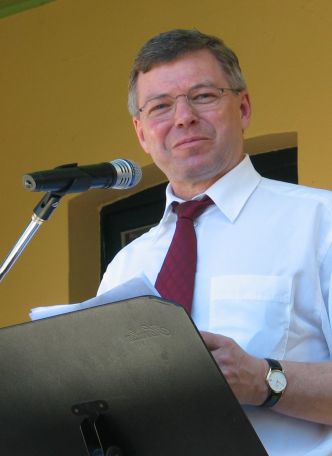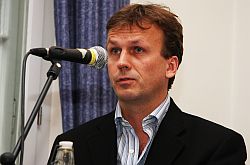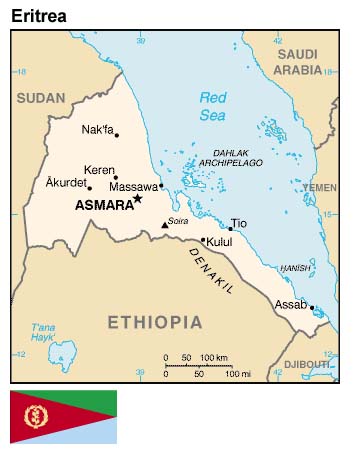 “The human rights violations on the Horn of Africa have been overlooked year after year, and the Western countries’ focus has been directed to other issues, such as stability and security. It is time now to direct the focus to the oppression of a forgotten people”, former Norwegian Prime Minister Kjell Magne Bondevik, right, says.
“The human rights violations on the Horn of Africa have been overlooked year after year, and the Western countries’ focus has been directed to other issues, such as stability and security. It is time now to direct the focus to the oppression of a forgotten people”, former Norwegian Prime Minister Kjell Magne Bondevik, right, says.
The report ”The Lasting Struggle for Freedom in Eritrea” was commissioned by the Oslo Center for Peace and Human Rights from professor Kjetil Tronvoll, below. The study analyzes developments in Eritrea following the liberation in 1993, placing the human rights situation in a political-historical perspective in order to understand why the regime developed in a negative direction.
Western countries’ interests on the Horn of Africa have largely been tied to questions of security and anti-terror. Strong Western states have mainly chosen to ally themselves with Ethiopia in the fight against terror. This has upset a fragile balance of power on the Horn and led to radicalism and polarization between actors who earlier managed to live together in relative peace – despite differences. The result is that people in Eritrea suffer.
 Systematic oppression
Systematic oppression
When Eritrea gained independence from Ethiopia in 1993, many hoped that the new country would develop into a democratic society with respect for human rights. Instead, the country has evolved in an ever more oppressive direction.
Today all political opposition is forbidden, and all independent media institutions were closed in 2001. In addition, the authorities intervene directly in ongoing court cases and control the courts. Imprisonment, torture and executions without judgement are increasingly frequent. An extensive and efficient system of informants keeps the people in an iron grip.
“Eritrean leaders are marked by a warrior mentality that makes them regard all opposition as treason and resort to all means in order to control the population. The unsettled border conflict with Ethiopia also contributes to keeping the country on a war footing, which has very negative consequences for the human rights in the country”, Bondevik says.
Laborious efforts needed
Nils Jakob Harbitz from the Human Rights House Foundation (right) brought up several possible alternatives to contribute to a positive change in Eritrea. Especially is the Human Rights Council’s Universal Periodic Review central. Eritrea is reviewed by the Council in November. The next opportunity will not be for another four years.
“This is a new consultative mechanism which can potentially contribute. Many international actors and the entire UN-system will pay attention. This is one arena where the Oslo Center can contribute with a lot of information to the central actors”, Harbitz said.
Harbitz also emphasized the value of commitment and patience.
“We must raise these matters carefully as well as working systematically, intensively and not backing out. Backing out will only result in a lack of trust with the local human rights workers”, he said.
M ust come out of isolation
ust come out of isolation
Today, Eritrea is practically isolated from the surrounding world. In the opinion of the Oslo Center, Eritrea must come out of the isolation if the international community is to contribute to a positive development for the country.
“The first step toward change is for international decision makers to get involved in the forgotten situation in Eritrea. Following that, the surrounding world must again try to bring Eritrea out of isolation”, Bondevik says.
The Oslo Center recommends that the UN appoints a fact finding commission with a mandate to investigate the violations in the country. A commission of this kind would be able to obtain further documentation and contribute to a stronger focus on the situation in the country.
Eritrea report



